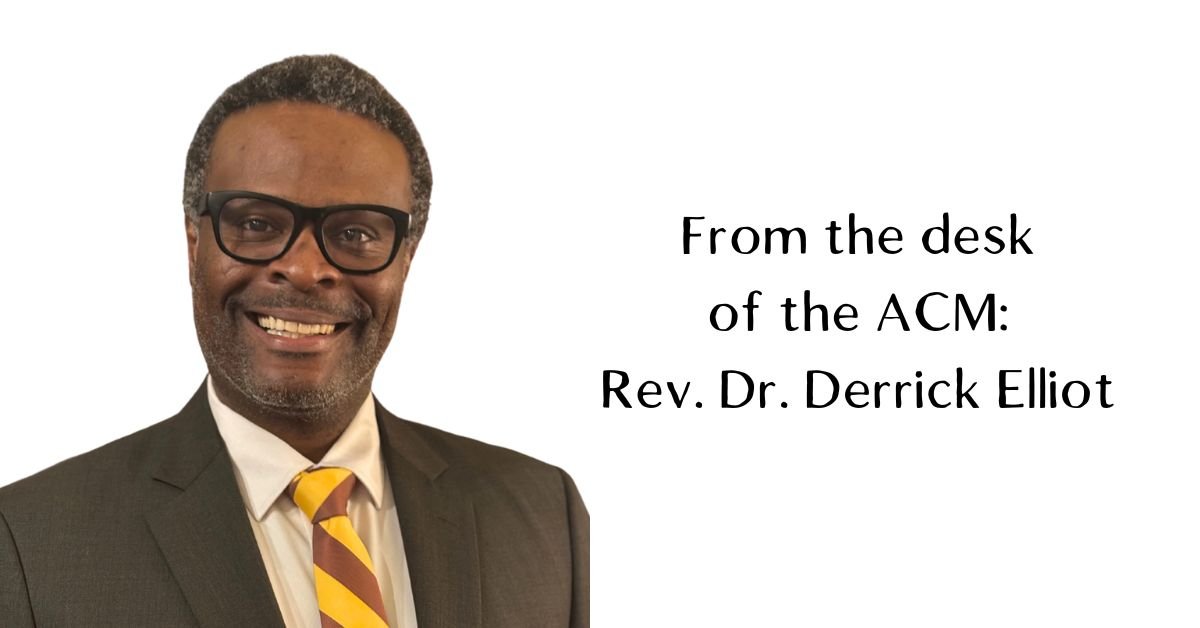From the earliest days of Scripture, the covenant has been at the heart of God’s relationship with humanity. In Genesis, God’s covenant with Noah (Genesis 9:8-17) established a promise of faithfulness, while the covenant with Abraham (Genesis 12:1-3, 15:1-21) formed the foundation of Israel’s identity. The Mosaic covenant (Exodus 19-24) shaped the communal life of God’s people. In Christ, we find the fulfillment of covenant through grace (Luke 22:20). Throughout the Bible, covenants are not merely contracts but sacred commitments—mutual promises between God and people and between people themselves.
As part of the Southwest Conference’s ongoing commitment to accountability and shared ministry, I recently emailed all SWC church office staff requesting a copy of the clergy Call Agreement and Covenant Agreement. I encourage you to do so if you have not yet submitted yours. Beloved Church, ensuring these agreements are in place strengthens our covenantal bonds and reaffirms our commitment to faithful ministry in the UCC.
In the United Church of Christ, this biblical understanding of covenant shapes our approach to ministry, guiding the relationships between clergy, congregations, and the wider church. The draft Manual on Local Church and the Manual on Ministry emphasizes that while local churches have autonomy in governance and decision-making, they are also bound by a sacred relationship with the wider UCC. This covenantal relationship means that churches are not isolated entities but part of an interconnected body, called to mutual support, accountability, and shared ministry. Covenant is not about control but commitment—honoring both the freedom and the responsibility of belonging to the wider church.
Covenant Agreements vs. Call Agreements
Understanding the distinction between Covenant Agreements and Call Agreements is essential to upholding the integrity of our shared ministry.
Covenant Agreements
Covenant Agreements define the relational accountability between ministers, their congregations, and the wider church. These agreements ensure that ministers serve faithfully within the UCC’s polity and uphold our shared commitments.
• Three-Way Covenant – Includes the minister, the local church, and the Association/Conference, affirming mutual accountability and shared ministry.
• Four-Way Covenant – Adds a non-church ministry setting (such as a chaplaincy or nonprofit), reflecting the broader reach of a minister’s calling.
• Oversight – The Committee on Ministry (COM) ensures these agreements align with UCC values and maintain ministerial standing.
Call Agreements
Call Agreements function as employment contracts between a local church and its pastor. While rooted in the autonomy of the local congregation, they still operate within the UCC’s broader covenantal system, as ministerial standing remains under the oversight of the Association or Conference.
Why Does This Matter?
Some may ask, “Dr. Derrick, why is this important? I only completed a Call Agreement in the past!” The key distinction lies in their purpose:
• Covenant Agreements establish the minister’s relationship with the wider UCC and their accountability beyond the local church.
• Call Agreements define the practical terms of employment within a congregation or ministry setting.
Both agreements work together to ensure that the Conference, ministers, and congregations remain in the right relationship with one another and the broader UCC. We strengthen our shared ministry by upholding these agreements, fostering trust, accountability, and faithfulness in our covenantal commitments.
Let us continue walking together in faith, honoring the sacred bonds that unite us in ministry.

